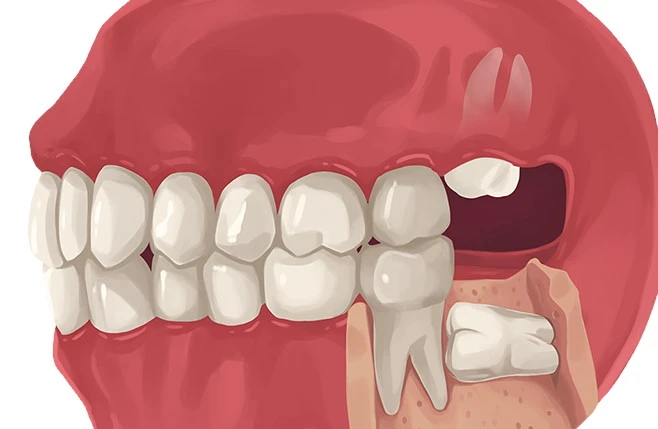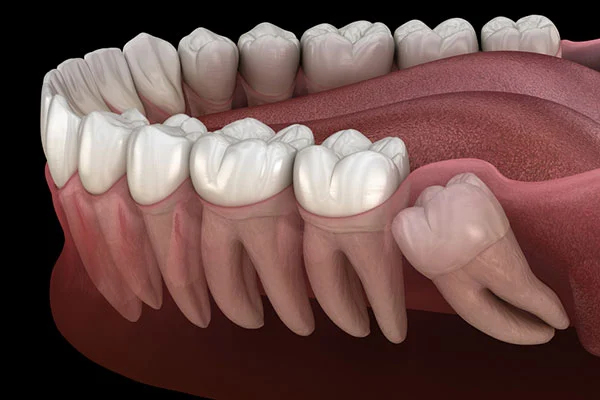Wisdom tooth removal cost without insurance, also known as third molars, are often seen as a rite of passage into adulthood. However, the cost associated with removing these teeth can usually be a painful surprise, especially when insurance doesn’t cover the procedure. For those without dental insurance, the financial aspects of wisdom tooth extraction can lead to uncertainty and anxiety. This comprehensive guide will unpack the often opaque world of dental cost structures and provide actionable strategies for managing the financial burden of wisdom tooth removal.
A dentist or oral surgeon visit is inevitable when managing wisdom teeth’ discomfort and potential issues. Unlike routine cleanings or check-ups, wisdom tooth extractions tend to be more complex procedures and, as such, can lead to a significant bill. For those without dental insurance, the anticipation of cost can be as overwhelming as the extraction itself.
Understanding the Procedure and Its Importance
The wisdom teeth are the last pair of molars that usually erupt in the late teens or early 20s. They can cause oral health problems, from impacting other teeth to causing infections and pain. Removal is often recommended to avoid these issues and ensure the long-term health of the mouth.
The Importance of Financial Planning
The removal of wisdom teeth is not just a medical consideration; it’s also a financial one. Dental care costs can vary widely, and understanding and planning the procedure is crucial without insurance to cover the expense.
Factors That Influence the Cost of Wisdom Tooth Removal
Several elements impact the overall expense of wisdom tooth extraction. You must be aware of these factors as you plan for the procedure.
The Complexity of Extractions
Not all wisdom tooth extractions are created equal. The complexity of the surgery, including how the teeth are positioned and whether they’re fully or partially impacted, can significantly influence the cost.
Location and Practitioner Expertise
Where you have the surgery and the experience level of the practitioner, it carries weight in the overall expense. Surgeons in urban areas or with specialized expertise may charge higher fees.
Pre and Post-Operative Care
The care required before and after the surgery can add to the total cost. This includes X-rays, initial consultations, and follow-up appointments.
A Breakdown of Potential Costs
To demystify the components of wisdom tooth extraction, we break down the potential expenses associated with the entire process.
Consultation Fees
Before the extraction, you’ll likely incur a consultation fee, where the dentist assesses the necessity of the surgery and plans the procedure.
Procedure Costs
The removal of wisdom teeth is a significant cost component, which can range from a few hundred to several thousand dollars, depending on the case’s complexity.
Anesthesia Options
Your choice of anaesthesia also affects cost. General anaesthesia renders the patient unconscious and is more expensive than local anaesthesia, which numbs only the area around the tooth.
Medication Expenses
Pain management and infection prevention may require prescriptions, adding another line to the expense report.
Follow-up Care Charges
Post-operative care, including any necessary wound management and recovery check-ups, is also part of the overall cost.
Strategies to Manage Wisdom Tooth Removal Costs
While the expense of wisdom tooth extraction can be significant, there are several strategies you can employ to manage the financial burden.
Payment Plans and Financing Options
Many dental providers offer payment plans or financing to spread the cost over time. This can make the procedure more manageable in the short term.
Negotiating with Dental Providers
Don’t hesitate to negotiate costs with your oral surgeon or dentist, particularly if you demonstrate financial need.
Seeking Affordable Clinics or Charitable Organizations
Some dental clinics operate on a sliding scale based on income, and charitable organizations may offer financial assistance for medical procedures.
Exploring Dental Schools for Discounted Services
To save on the extraction cost, consider being treated at a dental school under the supervision of experienced professionals.
Comparative Analysis: Costs With and Without Insurance
To put the financial implications in perspective, it’s helpful to compare the cost of wisdom tooth removal with and without insurance coverage.
Average National Costs
The national average cost of a wisdom tooth extraction without insurance is around $1,000 to $3,000 per tooth, including all related expenses.
Insurance Coverage
With insurance, some or all of the extraction costs may be covered, significantly reducing out-of-pocket expenses.

Wisdom Tooth Removal Without Insurance: A FAQ
Here are answers to some frequently asked questions about managing wisdom tooth removal costs without insurance:
What are the payment options if I don’t have insurance?
You can pay for the procedure upfront, work out a payment plan with your dental provider, or apply for financing through a third party.
Can I claim tax deductions for wisdom tooth removal costs?
In some instances, medical expenses can be deducted from your taxes. Seeking advice tailored to your circumstances from a tax expert is imperative.
Are there any free resources available for wisdom tooth extraction?
Some local clinics and charitable organizations may offer free or reduced-cost dental services, including extractions.
Planning for Wisdom Tooth Removal and Beyond
Financial planning for wisdom tooth extraction is not just about the immediate cost. It’s part of a holistic approach to managing healthcare expenses, including building an emergency dental fund and exploring your options for comprehensive insurance coverage.
The Importance of Saving for Dental Care
Unexpected dental procedures like wisdom tooth extraction highlight the importance of explicitly earmarking savings for healthcare.
Considering Dental Insurance or Discount Plans
Investigating dental insurance or discount plans can help mitigate the costs of wisdom tooth removal and regular dental maintenance.
Long-Term Financial Health
A well-planned approach to healthcare costs, including dental, contributes to your long-term financial well-being and peace of mind.
Conclusion
Wisdom tooth removal is not only a health consideration but a financial one, especially when insurance doesn’t cover it. Being proactive and savvy about your options can make the process more manageable and less daunting. Start by exploring all possible avenues for coverage and assistance, understanding the potential costs involved, and strategizing how to finance the procedure if needed. Making informed decisions now will set you up for a healthier, more secure financial future.

